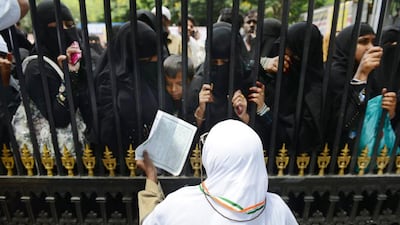ABU DHABI // Countries sending pilgrims to the Haj in Saudi Arabia should increase surveillance for a deadly virus that has killed more than 50 people in the kingdom, the World Health Organisation’s emergency committee has said.
While the committee said the Mers coronavirus outbreak is not yet a public health emergency, the Haj pilgrimage, which begins next month and last year attracted 3 million pilgrims, has raised concerns that the virus could spread globally.
There have been 130 laboratory-confirmed cases and 17 suspected-cases of the virus in nine countries since it was first detected last year. Forty-two per cent of those patients have died, making Mers far more lethal than its relative, the Sars virus, which swept through Asia in 2003.
All reported cases so far have been linked to the Arabian Peninsula but Dr Keiji Fukuda, WHO assistant director-general for health security and environment, said the emergency committee was concerned that, in many countries sending pilgrims to the Haj, “levels of surveillance [for Mers] remain sub-optimal”.
Another concern is simply how little is known about how the disease is spread. Dr Fukuda said that while two-thirds of cases are linked to another known patient, the source of infection for one-third of the cases remains unknown. These so-called “community infections” tend to be older, male, and often have underlying health conditions.
The emergency committee, which has specifically asked to reconvene before the Haj, heard reports from Qatar and Saudi Arabia, which has seen 115 cases.
Saudi authorities “have expended a huge amount of time trying to be as prepared as possible” for the Haj, Dr Fukuda said. Among the measures, Saudi Arabia has asked elderly pilgrims and those with chronic diseases to postpone their journeys to Mecca.
edickinson@thenational.ae

